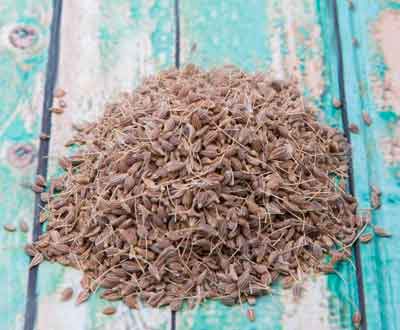If you own a cat and a dog you know dogs are curious about catnip, but you may be wondering if catnip for dogs is actually a thing.
Will Catnip Hurt Dogs?
Catnip will not harm your dog and can actually offer some health benefits.
Traditional catnip does not have the same affect on dogs as cats, but there is a catnip alternative for dogs that some may refer to as “dognip” and I will talk more about that below.
This surprises a lot of people; but this magical catnip like treat for dogs is called anise, a member of the carrot and parsley family.
Anise is packed with beneficial essential oils and minerals and while it may not have the same effect on dogs as catnip has on cats, in most cases, it will affect your dog in some way.
Still, pet owners should be careful about how they use this little-known product.
The obvious comparison for dognip is catnip, which people use to train and entertain their felines.
Related to mint, catnip doesn’t affect dogs in the same way as cats, and, in fact, it doesn’t really affect them at all.
In this article, we will cover everything people need to know about dognip and catnip.
What Is Catnip?
We should probably give you a heads up to what catnip is and why it really either has no effect on your dog or sometimes can give the opposite effect on dogs than cats.
Catnip (nepeta cataria) is a member of the mint family and has a strong aroma and downy texture.
It contains a chemical compound called nepetalactone in the leaves and stems that produce a “high” sensation.
Cats will feel an immediate stimulation that lasts for 10 to 15 minutes.
Each cat’s reaction will depend on the breed and the dosage.
Behaviors can vary wildly from having a sedative effect to inducing hyperactivity.
While catnip is considered safe, it may cause vomiting and diarrhea for some felines, especially if a cat consumes too much.
Approximately 75 percent of cats react to some degree or another to catnip.
Some experts believe the responses are sexual, which can include rubbing, vocalizing, and salivating.
Catnip is generally harmless and non-addictive, regardless of the consumption method.
Does Catnip Affect Dogs?
The million-dollar question is, “Does catnip affect dogs?” The very short answer is…no, catnip does not affect dogs, in most cases.
While catnip may have the opposite effect on dogs that cats have, meaning they may actually become more relaxed, it does not at all harm them or have any other major affects.
I also read someone say that catnip helped relieve pain their dog was having, but I could find no research or veterinarian that would back this up, so if you are trying it as a pain reliever, you probably will not see results.
For people wondering if catnip is bad for dogs, that’s another “no.”
Catnip causes no issues if they ingest it on a small scale, so if your dog is licking up your cats leftovers, fear not!
Dogs can and do eat catnip, especially if they share a home with a kitty.
But catnip will not have the same effect on your dog since the brains of dogs and cats are very different.
Can Dogs Play With Catnip Toys?
A dog that ingests a small amount of catnip is in no danger at all, but we highly recommend you not let your dog play with catnip toys!
Dogs should not be allowed to play with catnip toys, not because of the catnip but because of the small parts and components that they are typically made with and the toys small size that dogs can accidentally ingest.
Ingesting catnip toys can cause blockage issues in your dog, sometimes needing surgery to remove them if they cannot pass them naturally.
Some pet owners like how their dogs react to catnip and some have even made their dog catnip tea which some say may help a dogs digestion and soothe bellies.
Catnip tea is easy to make using a few teaspoons of dried catnip leaves mixed with a cup of boiling water and yes, people can drink it too.
Can Dogs Eat Anise – Catnip Equivalent For Dogs?

Dogs should not feel left out, though.
The “catnip” equivalent for dogs, as mentioned earlier, is anise or aniseed.
The flowering plant is native to southwest Asia and the eastern Mediterranean and shares characteristics with star anise, licorice, and fennel.
The use of anise in dogs’ diets goes back centuries.
For instance, race tracks would coat the “rabbit” in the dog race with anise seed extract as a way to entice the dogs.
As a result, once the race started, the dogs would feverishly chase the rabbit.
While researchers do not know the precise reasons for the attraction, dogs may enjoy anise, in part, because of the scent.
Canines rely on their sense of smell significantly more than humans.
As a result, the pungent and intoxicating odors of anise can stimulate dogs in the same way people receive a jolt from caffeine.
Aniseed Oil: A Little Caution
It is worth taking a moment to talk about aniseed’s essential oils.
Anise oil comes from the interior of the seed and should be used with caution.
For example, people should not apply the oil to their pet’s skin, nor should they let their dog consume the aniseed oil directly.
But, you can coat a dogs toys with it though to let them get the odor which may excite them!
While some oils are safe for limited consumption by dogs, many are not including:
- Cinnamon
- Citrus
- Clove
- Garlic
- Juniper
- Pennyroyal
- Peppermint
- Pine sweet birch
- Tea tree
- Thyme
- Wintergreen
- Yarrow
- Ylang ylang
The whole seeds of anise are safe for your dog to eat, in moderation of course.
You can integrate them into recipes or add a pinch on top of your dog’s food.
They can help decrease bloating and quell any digestive tract issues.
Too much aniseed can be harmful to your dog, so please be aware of how much your dog takes in.
We do recommend checking with your vet prior to giving your dog aniseed.
How Does Anise Affect Dogs?
All dogs will not react the same way to anise.
The most common reactions are hyperactivity or mellowness, which is why people compare it to catnip for felines.
The strength and direction of the response will likely depend on the dog’s natural demeanor.
Oddly, anise tends to have an inverse effect on temperament.
People who have energetic dogs will probably see a calmer and more tranquil side of their four-legged friend.
Conversely, mellow canines may show a little bit of crazy behavior, liveliness and vigor.
Like any supplement, owners should give anise in moderation.
The herb is safe in reasonable doses, though too much can lead to an upset stomach and diarrhea.
Some other symptoms may include, but are not limited to:
- Lowered heart rate
- Nervous system depression
- Slowed breathing
People who use anise for their canines generally treat it as a reward.
This can include sprinkling some on the dog’s food, as mentioned earlier, or blending it into a homemade dog treat.
Dog owners have also used the herb as a remedy for multiple ailments, such as:
- Asthma
- Constipation
- Gastrointestinal issues
- Lack of appetite
- Seizures
- Upset stomach
Aniseed’s active ingredient is a compound called anethole, which occurs widely in nature and is also found in other plants and essential oils.
This phenolic ether has a strong scent, which is what attracts dogs.
The compound can also help with essential functions and actions within the body, like those listed above.
Anethole, which makes up 85 to 90 percent of anise, is a natural inflammation suppressor.
While the predominant use is as a flavoring substance, it can also help eliminate free radicals and boost the nervous system.
This compound also has insecticidal and estrogen-esque characteristics.
It should come as no surprise that similar herbs, like licorice and fennel have high levels of anethole as well.
This makes them natural alternatives to anise.
In case someone is wondering, “Can dogs eat fennel?” the answer is a resounding yes!
Fennel seeds are part of a perennial herb native to the Mediterranean.
Many people consume them as a form of after-dinner “mint” and to aid in digestion.
The compounds inside fennel can have beneficial properties for dogs, too, as the seeds are 50 to 70 percent anethole.
Some of the benefits of using fennel include helping with:
- Indigestion
- Intestinal cramps
- Nausea
- Parasites
- Upset stomach
Licorice offers many of the same benefits, though it is more widely known as a candy instead of for its similar positive health implications.
For example, people can add 12 to 20 drops of a tincture into food or water, per 20 pounds of their dog’s weight.
The sweet taste of licorice can even help cover up unsavory flavors.
Note that dog owners should not feed their pet any form of licorice candy to avoid the risk of obesity, tooth decay, and other complications.
There is actually a fun brand called Doggijuana that made catnip treats just for dogs, so if you are looking for something special for your pup, it is worth checking them out.
Recipe For Anise Cookies
If you decide you want to try adding a little dognip to your pooch’s world, then cookies are a great way to to do it.
Below is a great recipe for dog treats that contain anise.

Homemade Dog Treats with Aniseed
image credit & recipe courtesy: A Tipsy Giraffe

